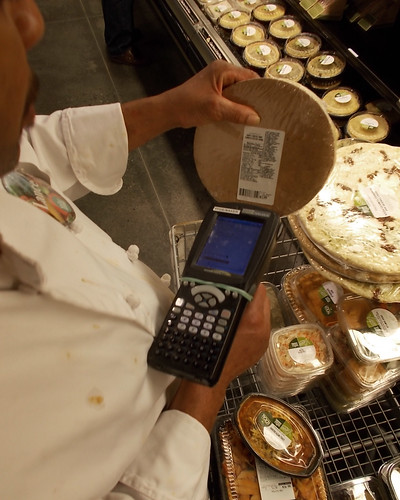
Thirty-one percent of food that is available at supermarkets, restaurants, and in households goes uneaten – food that was nurtured and harvested in the fields and ends up in a landfill. Increasingly food processing facilities, food service companies, supermarkets, and restaurants are recognizing the need to reduce, recover, and recycle all of this wasted food. The momentum is building as more and more address the problem and take action to keep good food from entering landfills.
A week from today - on September 24, Wednesday at 2:00 pm – 3:00 pm Eastern – you can join us for a webinar on “Supermarkets and Restaurants Fighting Food Waste and Saving Money” that will feature industry representatives discussing how they are leading the fight against food waste. There will also be time devoted to dialogue, Q&As, and the sharing of resources.
Register for the webinar here: https://www4.gotomeeting.com/register/241692455.
Why is there so much waste at the retail level? Consumers naturally tend to choose only the shiniest looking apple and freshest milk at the store. So what happens to “ugly,” misshapen, or slightly out of proportion fruits and vegetables that might have looked similar to the ones in your garden? What happens to that carton of milk or loaf of bread that is nearing its expiration or sell-by date?
Across the country, supermarkets and restaurants are coming up with innovative approaches to keep that apple and that carton of milk out of landfills or sewage drains. They are adopting innovative new approaches to reduce the amount of food that goes unsold, recover more wholesome unsold food to donate to people who need it, and recycle food discards to energy generation or composting.
Here in the U.S., the Grocery Manufacturers Association (representing food and beverage companies), the Food Marketing Institute (representing food retailers/grocery stores), and the National Restaurant Association (representing the foodservice industry) have formed the Food Waste Reduction Alliance. By improving food labeling, ordering and inventory management, marketing of “ugly” produce, partnerships with food banks and gleaning organizations, and compost and bioenergy production, supermarkets and retailers are doing their part to reduce, recover, and recycle food waste. There are numerous ways to fight food waste and many of these ideas will be shared on the “Supermarkets and Restaurants Fighting Food Waste and Saving Money” webinar.
Please join us to learn, get inspired, and share your ideas and activities on September 24. Register here: https://www4.gotomeeting.com/register/241692455.


